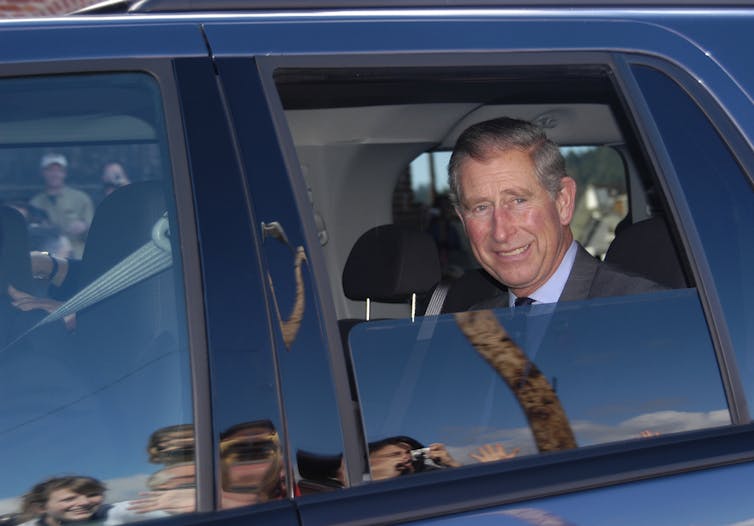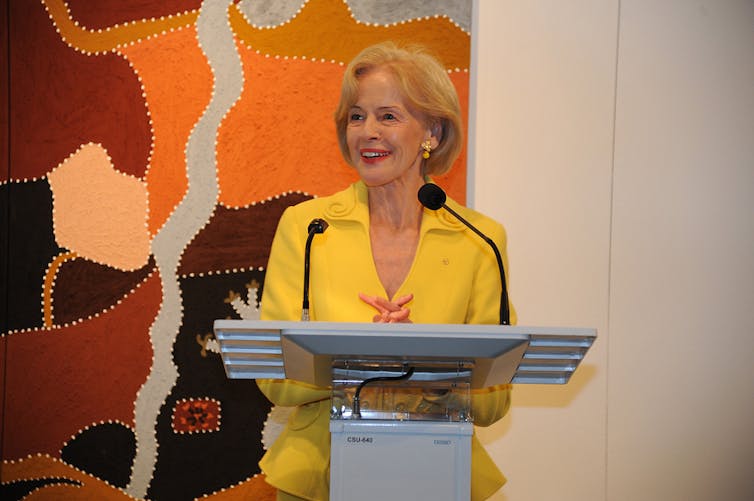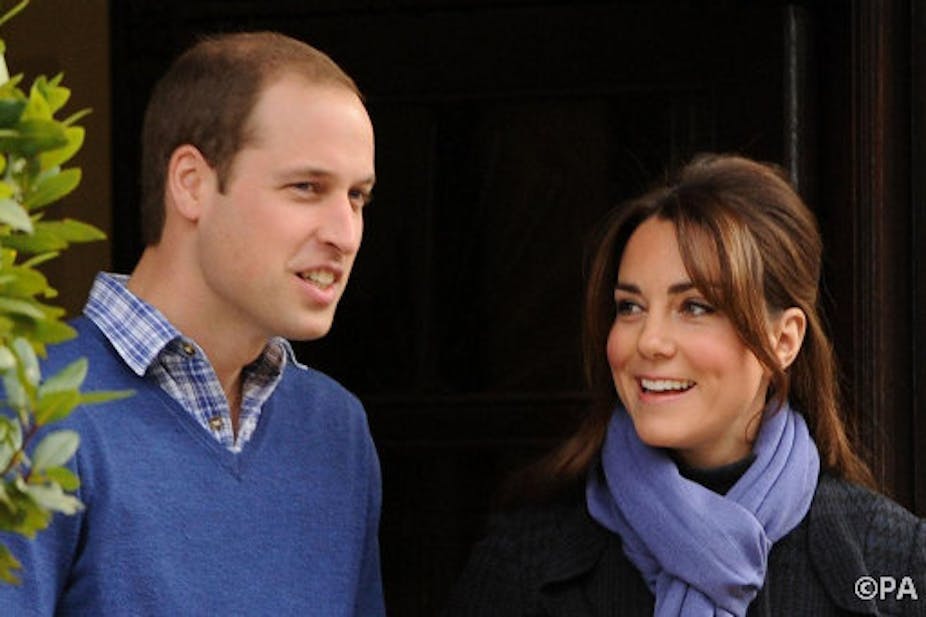Not for the first time in our long lives, Prince Charles and I find ourselves on parallel tracks, our first grandchildren born within weeks of each other. I offer him my congratulations, and hope that the experience will be as delightful for him as it has been for me.
Our paths first ran parallel almost 50 years ago, when we went to Australia as teenage schoolboys in 1966. Charles was sent there to boarding school for a couple of terms, a formative experience, apparently – “If you want to develop character, go to Australia”, as he put it recently, going on to mention some of the character-building nicknames employed by his Australian schoolmates.
I encountered those same character-building opportunities (and nicknames) as a migrant from the UK – my family arrived just three weeks after Charles left. We went our separate ways after that, of course. He came up to Trinity College, Cambridge, had a memorable gig in Wales in 1969, and has now served his country and the Commonwealth for more than 40 years. I went to the Australian National University, Canberra, making the first of many choices that also turned out to lead - happily though much more slowly - to Cambridge and to Trinity College.
But the biggest difference is that in common with most of my generation, in countries such as Britain and Australia, I made choices about what to do with my life. Charles did not, to an exceptional extent. Important as his life’s work is, he did not have the opportunity to choose it, or to volunteer for it, in any meaningful sense.
We don’t know how conscious he has been of this lack of choice, but from the outside - from the perspective of someone who has had choices - his life looks like “a comfortable form of inherited imprisonment”, as one of his biographers described it long ago.
This brings me to what puzzles me about reactions to the happy news about Charles’s grandson. It is the apparent indifference, on the part of everyone who expresses views on these matters - from the most loyal monarchists all the way through to staunch republicans - to the fact that this child faces the same fate as his famous grandfather. Nobody seems to care about baby Cambridge’s views about whether he wants to be King of England.

I wrote about this in The Conversation six months ago, when the initial news about Kate’s pregnancy bought some welcome cheer to a cold Cambridge winter. I pointed out how dismayed most of us we would be if the state decided to conscript our children for future public office - if the prime minister turned up on our doorstep, with the news that our child was going to be brought up to be Archbishop of Canterbury, or master of Trinity, or something equally splendid. But that’s precisely the situation facing baby Cambridge and his future siblings. The only difference is that the prime minister doesn’t need to make a house call – the entire nation just takes for granted that that’s the deal.
I asked whether this is acceptable. Does baby Cambridge really have fewer rights than all other children to be born in Britain over the next few years? If not, then we are simply not entitled to presume that he will wish to spend his life in our service, with all that that entails.
Since then, I’ve had some interesting feedback. Critics of my argument make two main points, the first neatly encapsulated in the words of one kind correspondent, who says that the “justification for hereditary monarchy is that it guarantees the continuity of the state”, and “the curtailment of freedom that being the heir to the throne involves is a price worth paying for the constitutional stability that a monarchical system secures”.
I have two responses to this. First, the evidence for the claim about continuity seems debatable, to say the least. Is Switzerland less stable than Sweden, say, or Austria than Belgium, or the US than Canada? (In each case, the first is a republic, the second a monarchy.) Second, I wasn’t proposing the abolition of the British monarchy (or of any of the handful of other modern democratic monarchies, in Europe or elsewhere). I was simply suggesting that it should be made fairer to the individuals on which it depends - at the very least, that the succession should be opt-in, rather than opt-out. (I suggested that eligible candidates should have the option of adding their names to a line of succession, and of removing them again, once they reach a certain age.)
So even if we were to grant - as I do not - that curtailment of the freedom of the heir would be a price worth paying for some modest increase in national stability, it is a completely unnecessary cost. With a little bit of thought, we could devise an efficient means of cleaning chimneys that didn’t involve children.
Some commentators seem to deny this, suggesting that the role of head of state in a system like Britain’s is so critical that we need to train people from childhood to do it. “A child likely to become the monarch needs a particular education/training for the role”, as one comment put it on my original piece.
I have two responses to this, too. First, if it were true that so much depended on the proper training of children then wouldn’t it make sense to choose the candidates a little more carefully - to screen them for intelligence, character, sociability, and the like, at six or seven years old, rather than relying on chance in such an important matter? More seriously, the idea that these constitutional tasks depend on childhood training is amply refuted by the long experience of countries such as Canada, New Zealand and Australia, where the roles are filled by governors-general, who are chosen for the job not on the basis of special childhood training but of distinguished contributions to public life.

The present governor-general of Australia, for example, is Quentin Bryce, a grandmother of 10 herself, who, as her official website notes, “enjoyed a rich and distinguished career as an academic, lawyer, community and human rights advocate, senior public officer [and] university college principal”, before taking up the reins of state. Should Australians sleep less safely in their beds because Bryce was not trained from childhood for her vice-regal role? On the contrary, the experience of Australia, New Zealand and Canada shows how easy it would be to devise a grown-up monarchy for Britain, that didn’t depend on restricting the options of children and young adults.
It is easy to make fun of these attempts to rationalise what amounts to conscription for public office, but they reflect the deep and sincere affection that many people in Britain and the other modern monarchies feel for the institution, and for the families on which it depends. Unfortunately, affection for the institution, love of its traditions, is blinding these well-intentioned folk to the injustice to the very individuals on which the monarchy depends.
On the other side, those republicans who would prefer to abolish the monarchy altogether are so much in the grip of the idea that it represents an archaic form of privilege, that they, too, are blind to the injustice to the royal children themselves.
In my previous piece I predicted that as in cases like gay marriage, fair-minded people will soon agree that tradition needs to make way for simple justice. Some way will be found to make the monarchy less unfair. And it will probably survive, like marriage, more robust and popular than ever for dealing with the unfairness at the heart of its present version.
I pointed out that if we moved quickly, this change could be in place in time for the new baby Cambridge to benefit from it – before he goes to school, for example, and learns that his opportunities are different from those of other children. Hence my closing question, which I repeat here. Don’t we owe it to this welcome child to make this change, and to do it soon?

